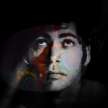Brief Innings
What do those of stalwart heart do after a perilous journey through a bleak and inhospitable land? Play cricket, of course.

Hambly thought; it was a colosseum, not bruised by old blood and the accretions of millennia, but of freshly cleaned bone, refined by an aeonic process of repetition, to a pure and shadowless white, not the pristine white of Christmas, nor the phantom-white of a suddenly billowing gas flame, but the white of masks and ash and funerals, now smeared by the shapes cast under a lowering sun of men brought to a halt, and in the throes of catching from the blue air, the ghosts of their breaths.
The dogs, in their traces, perhaps more sensibly, slumped to the hard packed ice, dark stoic eyes looking expectantly from below brows arched in fine crystals of snow, for a morsel.
“No sign of the Borealis, Captain?”
Captain Combridge stood on the lip of the depression, gazing out at the sharp-toothed field of blue-white shards in the twilit seas of Egg and Chicken Bay. The lowering, eyelet sun broke through the enclosing overcast for a moment, as if just to light on him with some sort of honeyed blessing. He’d allowed his beard to grow into the fierce affront of some mountain prophet, but still carefully waxed the architecture of his broad moustaches every day. Despite privation, he remained broad as a rock, knuckling at his lip with hard, strangler’s hands. He was, in Hambly’s estimation, a lunatic. Inspired, yes. A lunatic nonetheless. He’d brought one sled and team of twelve just for furniture. A roll top desk, a small walnut pianoforte from Salarzin of Leipzig decorated in a Rabelaisian manner with scenes of fauns and maidens in risqué frolic, that once belonged to Frederick The Great.
“We must bring civilisation with us to God’s abandoned places,” he’d said, quite seriously. The pieces were now spread out over the 500 mile extent of their route, re-supplying camps and base stations from Mt Hope to McMurdo Sound. When they’d had to leave it behind, the remaining, half starved dogs no longer able to bear the weight, on a comb of ice like the encrusted bones of some long petrified behemoth, he’d sat there delicately picking out a Bach etude, the Aria da Capo, fragile as ice in those big, murderous, bloodless hands, tracks of tears frozen on his face.
Of course he’d left the first hand, Carothers, the astronomer, Zygo, and the Darwinian biologist whose name always escaped him at other nameless and vacant coordinates with scant prayers and no ceremony, except a few, brief jottings of arc and minute and latitude on the map. At the blasted site of the pianoforte, after his impromptu performance, he declared the formation, forever, for all men and and all time, The Goldberg Wasteland.
“I’ve become familiar -” he was saying as he turned, interrupting Hambly‘s musings, “to the point of contempt - with ice and snow in all its furied devilry, but I have never seen such as this. Ugly, dead, leprous. A whited sepulchre if ever I saw one.”
“Nor I, Sir.”
He checked the map once again, the squirrelled lines as indistinct as an old hand’s tattoos, folded the waxed sheets, replaced lovingly in their shagreen binder, consulted compass, chronometer, sextant, each carefully returned to its shaped receptacle, hidden again about the lumpen scarecrow of his person. Calculated against the tables in his mind, said, “Nevertheless, as the man said - better three hours early, than three minutes late. There’s an easy route down the cliff face when she arrives, bear up, Hambly, home by June.”
“The men are flagging, Captain. I’m not sure they’ll last three hours.” The dozen or so survivors, who had stumbled blindly through nine days of blizzard, another four of blinding, numbing, interminable white out, slumped or lay like rags and debris against the spar of sleds. Nothing left to show of their humanity except the strained expulsions of their whited breath. The few malamutes rested warily, in the lee of an area of low stepped obsidian rocks, warming noses between extended paws.
Combridge considered a moment. A few stray penguins had returned from the sea, filed in twos and threes up the narrow path from the rock and ice-bound shore below, gathered in their rookeries amongst the black stones at the edge of the shallow oval depression. Watched with small, hard eyes from behind burlesque feathered masks. Issued harsh and elegant and raucous warning cries.
“You know what the Major would have done?”
Major Ayers had lead them a hundred miles off course, into a blizzard and a mazy no man’s land of shards and shadowed shapes, through privation and unending white out, to the edge of a kind of madness, then shot his arm off with an elephant gun in what could only be described as a hunting accident. He’d brought a brace of them. Hambly wasn’t sure why. Walruses? Penguins? Russians? They’d eaten the Major. Well, technically they’d fed him to the dogs, then some immeasurable days later, in the peculiarly isolating glow of a fire made of a broken up sled and a small, elegant chinoiserie, they’d eaten two of the remaining dogs. To Hambly, for reasons he wasn’t willing to explore, that seemed almost the same. Except the Major’s head. Combridge had insisted on keeping that, carefully wrapped in strips of waxed canvas and sewn into a leather bag, to honour at home in England. Hambly imagined it, the pained, surprised look still about the mouth and patrician nose, mounted on the smoke stained, mahogany panelled walls of a dining hall at the Royal Expeditioner’s Society, amongst the disgruntled tigers and dismayed gazelles, with others of its ilk.
“I don’t know, Sir. Cricket?” Hambly proffered, mouth, too late, twisting. Irregardless of their folly, it was ill to speak so of the dead.
“Exactly!”
Combridge banged his hide wrapped forearms together, creating a dirgesome but penetrating beat.
“You men,” he said. “We have dragged ourselves through this sorry hell, through the heart of emptiness, born all the contempt it threw at us. Lost good men and good dogs to it’s hunger. Though some may say we have fallen, failed, I say nevertheless; we have made sure the path for those that must inevitably follow. We have raised the flag, in this blighted place, as is our tradition. Now is not the time to rest, on our laurels, on our weary haunches – but arise. We shall show this land that we are far beyond defeat. Pugnasse, lusimus, vicimus, as great Caesar may have said. Form yourselves up, while we await the Borealis, in honour of our fallen, in defiance of that which would deny us, in keeping with our tradition, I think, a game of cricket. England versus Australia, we’ll show them what kind of men we are, or may the Empire fall.”
Knudsen, who was removing the dogs from their traces, getting them settled, the only busy figure in the vast and echoing landscape, was the first to speak.
“Canadian, sir,” he muttered, in his bluff way, from the depths of his bearskin parka, feeding scraps to the impatient huskies. After a pause proffered, by way of further explanation, “don’t know cricket.”
“It’s rather like baseball, except vertical,” said Underwood, a spry young ship’s hand who’d signed on the outbound run from Hobart, and offered to remain with the party when a musher had become ill with appendicitis mid-voyage and been left ashore in a doctor’s care at Macquarie Island Station. “Cricket mad, I am. I have the Major’s bat in my pack. The Major said to me, ‘If anything should happen to me, my boy, see this old willow is returned to the halls of Rutherford - where I first played.’ But I’m sure he would have wanted us, in these circumstances, while we wait, to play.”
“Come on you fellows. We can position sleds here and here,” said Hambly. He didn’t much care for sports, per se, but could see the value in keeping the men active, busy, distracted. The practicalities of organising things, was, however, his metier. “Backs facing each other, as wickets.”
The men roused themselves up. Lumbered about, unloading the sleds of their remaining tarpaulined packages. An oval mirror. A typewriting machine. A Chippendale dresser. A three-quarters life-size statue of Queen Victoria, enthroned with lions, in the neo-classical style. Various indiscriminate boxes. The sleds were arranged. Creases drawn with the blunt hook of a whaler’s knife in the hard pack snow - though the pitch was somewhat shorter - the regulation four feet from the wicket.
“Uneven numbers, Sir. We have five Australians, seven English, one Irish, one Kiwi and our Canuck.” Underwood reported to Hambly, as tasks completed, the men gathered up.
“England versus the colonies, I think,” said Combridge, returning from his outlook on the outthrust lip of the ledge. Whilst looking out to the vast grey blue. Empty but for sea birds and scintillations, and trailing into the distance, the sparse white tips of icebergs in their convoys, he had observed proceedings nevertheless.
“Knudsen as umpire. Knudsen, you are to observe closely and make determination on the rules of play. The object is of course for a player to score points whilst at bat, by striking the ball to the boundary to earn six points should the ball reach the boundary - in the vicinity of those penguins there (a large crowd of penguins had gathered by now, chattering and preening, eyes painted for war), four points if it should reach the boundary along the ground. The batsman may also earn points by running between wickets if the ball should fall short of the boundary. The opposing player to strike them out, by hitting the wicket with the ball whilst the batsman is outside of the safe zone, behind the crease.”
“I’m sorry, Sir. It doesn’t make much sense to me. The only sport I follow is the Iditarod,” Knudsen said, scratching at the lead dog’s - Shirley’s - brindle ear with a thick-gloved hand. The dog also seemed somewhat confused.
“Think of it as an act of invasion and colonisation, Knudsen. The batsmen are the native people, guarding and holding claim to their territory. There isn’t enough of them to hold their entire territory, so when they fend off an advance by the invading forces - the thrown ball - they must run up and down to demonstrate that they do, in fact, claim all of the territory, rather then just the safe space near the wicket. Meanwhile, the encroaching colonists surround them in the field of play, occupying and making claim to the outer territories, whilst those with authority, the crown, the state, the government, the armed forces, the lords and land owners, are the bowler, they continuously pitch balls - launch attacks - on the natives in order to dispossess them.”
Knudsen, rather obstinately, Hambly thought, continued to look confused.
“Iditarod is just a dog race, Captain. It don’t involve pitching balls at natives.”
“Indeed. I will advise on the finer points and technicalities as we proceed.”
“Speaking of balls, Sir,” Hambly said to Combridge, “we don’t seem to have one.”
“Does anyone have a ball in their pack? A cricket ball, a tennis ball, a golf ball, a child’s India rubber bouncing ball? Anything round will do.”
There was a certain amount of shrugging, patting of parka pockets and half-hearted milling about before Underwood said, “There, on your sled, Captain. Right at the top. It’s a bit over large, but will certainly do the job.” There was indeed a round object in pride of place on the Captain’s sled, secured by straps, about the size of a small football, in yellowing leather, a curve of neat criss-cross stitches on one side.
“That, Underwood, is the Major’s desiccated head, which we are returning, to England, for burial.”
“Play called off due to importunate circumstances, Sir?” Inquired Hambly.
“Cricket mad, like me, Sir,” said Underwood. “I’m sure the Major wouldn’t mind. For the men, Sir. For the Empire!”
Hambly shuffled over to retrieve the object in question. From one angle, the row of stitches rather looked like a disapproving frown. From the other, an uproarious smile. It made the whole enterprise seem somehow, cheapened, dishonourable. As if they had come here to raise flags and build roads, but had, instead, defecated and disguised their filth under clean, white snow. Still, after weeks and miles of privation, cricket was about the only thing that made sense.
“Somewhat awkward. It does have a rather good heft, Sir.”
“Does anyone have a coin, for the toss? “ It seemed the Captain, through the moment’s chagrin and glory, had also acquiesced.
“We can use my old compass, Sir, “ said Hambly. “It’s broken anyway.”
The teams formed up around Combridge, Knudsen, Underwood and Hambly as he tossed the small brass disc flashing into the air. It landed face up, the blued steel needle spinning wildly, before settling with a heave and twitch, SSW on Combridge and the English team.
“Look, Sir, the lights “
In the grey twilit, above the bleary sun, sheets and waves of blue and pink and eerie green flickered and spread in coruscations thrown across the sky.
Even the penguins were silent for a moment.
“It’s as if…some vast and ancient gods looked on,” said Underwood, reverently taking the ball, feeling it’s width and weight, the downturned seam, it’s unusual indentations.
Combridge was before the wicket, champing at the ground with the tip of the bat. Knudsen stood at the bowler’s end. Shirley by his side, still rather flummoxed. Hambly there too, as the alternate batsman, crouched over, ready to run.
The fielders spread about the arena, bent over, gloved hands together, scarecrow figures indistinct in a new upswirl of snow. The few remainders of the English team gathered on a high point by the ledge, the green light in their eyes and faces, watching rather disconsolately.
Underwood took a few, short, brisk steps up to the wicket,and with a firm, compelling, sure and true overarm motion, bowled. The ensconced head flew in a long, downwards arc, wobbling slightly. Combridge took two determined steps forward, raising the bat back at almost shoulder height. The penguins shrieked. Willow hit leather with a resounding crack. The ball propelled through the air towards the perimeter of sky and sea beyond the ledge. Shirley gave chase, and leapt.
It was as if the gods had stood and roared. With an immeasurable sound, somewhere between complaint and too-close thunder, a crevice cleaved along the landward perimeter of the oval depression, the wedge-shaped forward ledge of the glacier calved, crumbled, slid down into the roil and tumult seas below.
The penguins, beyond the boundary of black rocks where they and other sea birds had kept their rookeries for millennia, raised their flippers to their faces against the sudden flurried snow.
Nearby, sceptre in one hand, orb in the other, attended by lions in repose, her empty marble eyes already hazed by surface fractures forming in the increasing cold, Queen Victoria looked on.
Epilogue
A Wireless Telegraph Report From The Ice Breaker, Borealis, Ross Sea, Antarctica, May 4th, 1913
We waited three weeks at the appointed coordinates, an unnamed rockbound cove on McMurdo Sound. Crew somewhat restless. Blizzards and storms sighted south east, inland. Rising seas. Coming in to that season where the ice shelf breaks up, making encounters with icebergs an increasing hazard.
With no sign of Major Ayers’ shore party, after discussions amongst the ship’s officers, it was determined that it would be safest to depart.
Our prayers with Ayers, Combridge and men, in the hope that sighting the extremities of weather, they remained at the Shackleton Inlet base camp.
Causing no little wonder, shortly after our departure, at the head of another ice and rock bound bay, approximately three and half nautical miles from the aforementioned coordinates, the watch reported a woman accompanied by beasts on the distant cliffs. Further observation through the ship’s telescope revealed nothing more than some unusual formations of rock and snow, however, much to our surprise, soon thereafter, we discovered a sled dog, and a cricket bat, and another, somewhat more gruesome object, that the dog was loathe to be parted from, adrift on a berg, details of which I will not enter into this record.
C. W. Roberts
Captain
H.M.S.S. Borealis
About the Creator
C S Hughes
C S Hughes grew up on the edges of sea glass cities and dust red towns. He has been published online and on paper. His work tends to the lurid, and sometimes to the ludicrous, but seeks beauty in all its ecstasy and artifice.






Comments
There are no comments for this story
Be the first to respond and start the conversation.